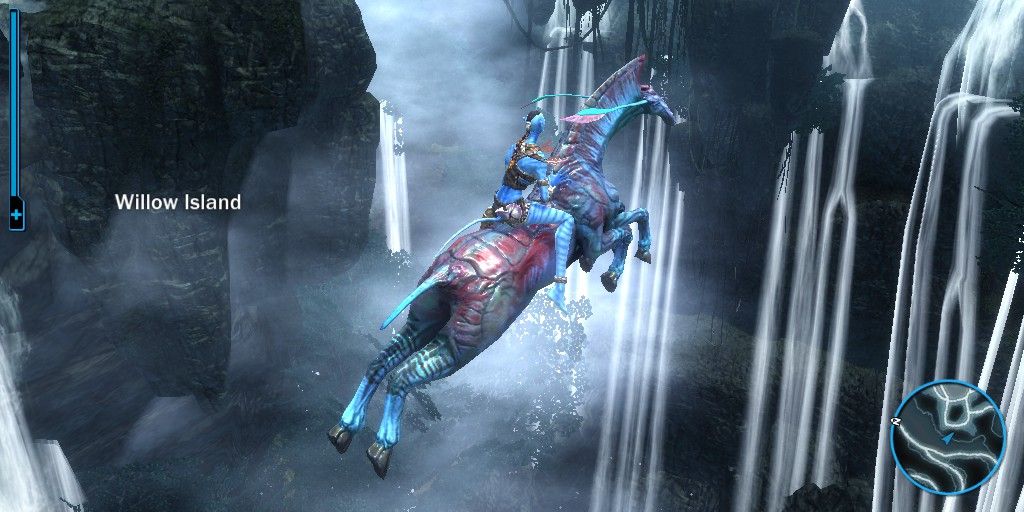James Cameron’s Avatar was, for a time, the highest grossing film in history. It mystified millions of viewers, inspired countless books, and comics, and even inspired an entire theme park experience. This insanely successful film also was the basis of an ambitious game of the same name.
James Cameron’s Avatar: The Game is a hack-n-slash/shooter adventure created by Ubisoft and released in 2009 for PlayStation 3, Xbox 360, Nintendo Wii, and PC. It received mixed to average reviews from fans and critics alike, yet many players likely don’t even remember its existence. James Cameron’s Avatar: The Game is pretty fun compared to the bulk of movie licensed games, and feels considerably better put together.
With the news of an Avatar sequel finally nearing the end of its production, gamers have likely been interested in checking out this game to get their Avatar fix and relive some of the wonder of the film. The property made a significant splash in multiple industries, as well as in pop culture, but the question is: how well does this game compare to the film it’s based on? Here’s everything to know about James Cameron’s Avatar: The Game.
What James Cameron’s Avatar: The Game Gets Right (& Wrong)

Avatar: The Game was produced by Ubisoft and was made under the close guidance of James Cameron himself. The game’s lead writer also worked on Watch Dogs and Far Cry: Primal, among many other Ubisoft titles. He came up with a story that would mirror the themes of the film without spoiling the experience for players. The game was set to release shortly before the film, so it needed to stand on its own without detracting from the overall viewer experience. For most critics, the film was an essential supplement for the game, rather than it truly being something that could be enjoyed on its own merits. It was a common criticism at the time that the plot was hard to follow.
The plot of Avatar: The Game follows one of a few interchangeable soldiers that serve as the stand in for a custom character. The player’s chosen soldier is tasked with deciding between betraying humanity and saving the Na’vi or working with the humans to destroy their home and steal their resources. One issue with the plot is that whereas the film has a slow progression into the lives of the Na’vi, the game involves the player becoming a leading member of their culture in a very short time. Avatar: The Game also does a lot of work to keep things feeling evenly balanced between the two sides. Playing as a human isn’t written to feel like the obviously negative choice, despite it involving the needless destruction of the Na’vi’s civilization. This caused some issues with critics at the time and hasn’t aged very well since.
Avatar: The Game shares the same general beats as the film but presents these changes in a streamlined manner. It is great learning to ride animals and unlocking new abilities, but these moments are made to be more momentous when they are shown in the film. There are also a few points that seem to contradict the film’s continuity. The game takes place a few years before the start of the film and involves a large uprising of the Na’vi against the human forces, whereas the film presents a powder keg of tensions that have yet to explode. The game even involves a former human learning to ride the Toruk, which is said to have been never done before in the film.
Overall, the game is a decent experience that far surpasses the quality of most other movie licensed games. Unfortunately it doesn’t hold up to most of the AAA titles of its day despite the time and money that went into it. Players who are interested in taking a look at James Cameron’s Avatar: The Game should give it a shot, as it is definitely an entertaining experience… but they probably should watch the movie first.




